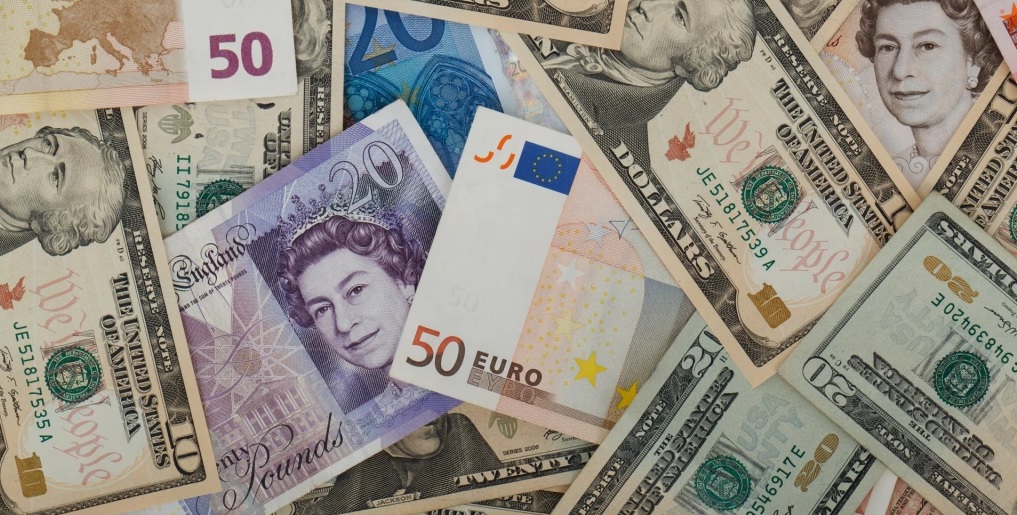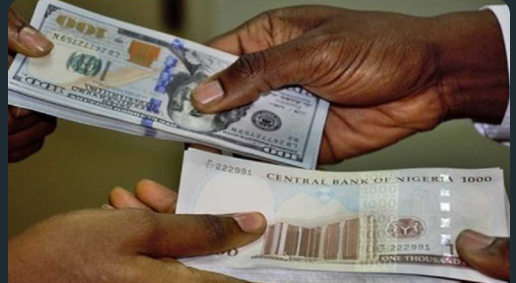Economy
FG announces incentives for Nigerians to repatriate foreign funds

The federal government has launched an amnesty initiative that allows individuals to deposit foreign currencies into banks without penalties or taxes — provided the funds are not proceeds of crime.
Announcing the initiative in a statement on Thursday, the ministry of finance said the programme is called the ‘Disclosure Scheme’.
Mohammed Manga, the ministry’s director of information and public relations, said the scheme, starting October, is for nine months.
The public relations officer said the initiative is designed to enhance transparency in the financial sector and boost Nigeria’s economic resilience, growth, and development.
He said by facilitating the voluntary disclosure, depositing, repatriation, and investment of internationally tradable foreign currency held by Nigerians, both within and outside the country, “the scheme aims to integrate these legitimate foreign currency assets into the formal economy”.
“The federal government of Nigeria is pleased to announce the commencement of the foreign currency voluntary disclosure, depositing, repatriation, and investment scheme, known as the disclosure scheme, in pursuance of Executive Order No. 15 of 2023 titled ‘Disclosure, Depositing, Repatriation, and Investment of Eligible Foreign Exchange Assets and Related Matters Order, 2023’ and the ‘Foreign Currency Disclosure, Deposit, Repatriation, and Investment Scheme Guidelines, 2024’, issued by the Honourable Minister of Finance and Coordinating Minister of the Economy, on October 25th, 2024,” the statement reads.
“Key objectives of the disclosure scheme: enhance financial transparency: Promote transparency in the financial sector by formalising legitimate foreign currency assets held outside the Nigerian banking system by Nigerians within or outside of Nigeria.
“Bolstering AML and CFT capabilities: The scheme specifically targets weaknesses in the existing framework by promoting cashless and legitimate transactions within the formal financial system.
“This strengthens regulatory enforcement while also encouraging financial practices that reduce the likelihood of illicit cash transactions.”
‘FUNDS WILL INCREASE RESERVES’
Speaking on the scheme, Wale Edun, minister of finance and coordinating minister of the economy, said the initiative would enhance financial security and contribute positively to the economy by increasing reserves and stabilising exchange rates.
“The disclosure scheme is a bold initiative aimed at integrating foreign currency outside the formal financial system into the formal economy,” Edun said.
“It strengthens transparency and economic resilience, setting us on a path to rapid economic growth.
“The scheme offers a secure, confidential channel for people to reintegrate their legitimate foreign currency funds, promoting stability and growth for our nation.
“Guided by President Tinubu’s leadership and supported by the Central Bank of Nigeria (CBN) and Ministry of Justice, we are building a transparent and inclusive economy, aligned with best practices in anti-money laundering and countering the financing of terrorism.”
Edun encouraged Nigerians holding legitimately earned foreign currency to participate.
Economy
Mobile Money transactions hit $1.68trn in one year

Mobile money platforms processed about 108 billion transactions valued at $1.68 trillion in 2024, according to GSMA’s ‘State of the Industry Report on Mobile Money 2025’ report released Tuesday.
GSMA’s mobile money programme works to advance the mobile money ecosystem of communities that lack access to more traditional banking services. The global body for telecom operators stated that mobile money transaction volumes increased by 20 percent year-on-year, while transaction values grew by 16 percent, up from a 13 percent increase in 2023.
“Transaction volumes and values for mobile money accounts experienced robust double-digit growth in 2024. Approximately 108 billion transactions, totalling over $1.68 trillion, were processed through mobile money accounts in 2024,” the report said.
Vivek Badrinath, director general of GSMA, said mobile money has emerged as a powerful driver of financial inclusion and economic growth. “Its continued success depends on supportive regulatory environments that promote innovation, accessibility, and help unlock the full socio-economic potential.
“To ensure mobile money remains accessible, affordable, and safe, it is vital for governments and regulators to work with financial service providers to support financial literacy programs, empowering underserved populations and opening new opportunities for financial decision-making,” he said.
The report stated that the GDP of countries with mobile money services increased by approximately $720 billion by 2023, reflecting a 1.7 percent increase. In Sub-Saharan Africa, mobile money added about $190 billion to GDP in the same year.
“The region remains the leader in mobile money, with active accounts increasing notably in East and West Africa. East Africa was highlighted for its growth in active accounts in 2024, followed by Southeast Asia and West Africa. Countries in East Asia-Pacific, including Cambodia, Fiji, the Philippines, and Vietnam, also demonstrated growth, attributed to favorable regulatory conditions.”
GSMA noted that mobile money providers in East Asia-Pacific have evolved to offer comprehensive financial services, with 44 percent providing credit services by June 2024. However, challenges persist, particularly for women, as eight of the 12 surveyed countries reported disparities in mobile money ownership based on gender.
“Nearly 60 percent of mobile money providers are addressing these gaps by implementing digital literacy initiatives,” the report said.
Mobile money reached two significant milestones in 2024, surpassing two billion registered accounts and over half a billion active monthly users across the globe. The industry took 18 years to achieve one billion registered accounts and 250 million active users from 2001, but this has doubled in the last five years.
Economy
SEE Black Market Dollar To Naira Exchange Rate In Lagos, FCT, April 7th 2025

The local currency (abokiFx) opened at ₦1,560.00 per $1 at the parallel market, otherwise known as the black market, today, Monday, 7 April 2025, in Lagos, Nigeria, after it closed at ₦1,550.00 per $1 on Sunday, 6 April 2025.
Black market dollar to naira exchange rate today, 7 April 2025, also known as Aboki forex, can be accessed below.
NOTE: The exchange rate changes hourly. It depends on the volume of dollars available and the Demand. What this means is that…you can buy or sell 1 dollar at a certain rate and the price can change (high or low) within hours.
The official naira black market exchange rate in Nigeria today, including the Black Market rates, Bureau De Change (BDC), and CBN rates. Please note that the exchange rate is subject to hourly fluctuations influenced by the supply and demand of dollars in the market. As of now, you can purchase 1 dollar at a certain rate now however, it’s important to remember that the rate can shift (either upwards or downwards) within hours.
Economy
Crude prices slump to $65 first time since 2021

Oil prices plunged this week to $65 per barrel as the United States import tariffs and an unexpected OPEC+ supply hike erased $10 per barrel from global benchmarks.
The price appreciated last week when US President Donald Trump imposed tariffs on any country that buys crude from Venezuela.
However, oil prices turned around the corner as of Friday, with Brent falling to $65, the first time since 2021.
According to oilprice.com, the combined effect of Trump’s import tariffs, OPEC+’s inopportune decision to speed up the unwinding of production cuts, and China’s retaliatory actions wiped off $10 per barrel from global oil prices, “with ICE Brent falling below $65 per barrel for the first time since August 2021.”
The US West Texas Intermediate crude futures lost $4.96, or 7.4 per cent to end at $61.99.
“Seeing backwardation barely change compared to the beginning of the week, one could assume that US tariffs are the defining factor for the price change. Nevertheless, this week will not go down well in the history of oil markets,” oilprice.com reports.
China’s retaliatory tariffs on US goods have escalated a trade war that has led investors to price in a higher probability of recession.
China, the world’s top oil importer, announced it will impose additional tariffs of 34 per cent on all US goods from April 10.
According to Reuters, nations around the world have readied retaliation after Trump raised tariffs to their highest in more than a century.
Aside from the tariffs, another factor that further pressured oil prices was the Organisation of the Petroleum Exporting Countries and Allies’ decision to advance plans for output increases.
The group now aims to return 411,000 barrels per day to the market in May, up from the previously planned 135,000 bpd.
-

 News17 hours ago
News17 hours agoOERAF held memorial lecture on conflict resolution, security/safety of community in Nigeria
-

 News22 hours ago
News22 hours agoTRADE WAR! U.S. angry over Nigeria’s import ban on 25 products
-

 News3 hours ago
News3 hours agoUS revokes more than 500 foreign student visas
-

 News17 hours ago
News17 hours agoHoR Minority Caucus decries killings in Plateau, Benue states, urges immediate presidential decisive actions
-

 News23 hours ago
News23 hours agoINTERVIEW: Introduction of Child Rights Curriculum In Nigerian Universities Will Take CRA to Families – Dr Obiorah Edogor
-

 News4 hours ago
News4 hours agoIbas picks administrators for 23 Rivers LGs(SEE list)
-

 News9 hours ago
News9 hours agoBandits have seized control of 64 communities in Plateau – Gov Muftwang
-

 Economy9 hours ago
Economy9 hours agoMobile Money transactions hit $1.68trn in one year





